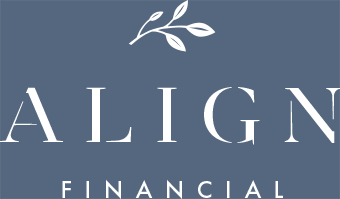Last year will be remembered for many things, including a global pandemic and highly contentious U.S. presidential election. However, 2020 is less likely to be remembered for record-high cases of identity theft. Nevertheless, a surge in online activity and stimulus money gave hackers and identity thieves ample opportunity to wreak havoc. As a result, identity theft reports in 2020 were more than triple the number from 2018, according to the Federal Trade Commission.
Being a victim of identity theft can be emotionally and financially devastating. If you’ve ever experienced it yourself, you know how stressful it can be to repair damage to your reputation, credit, or both. That’s why knowing how to prevent identity theft online is critical as we grow increasingly digitally connected and dependent.
Follow these steps to protect yourself online and prevent identity theft:
Step #1: Secure Your Network and Devices
A good first step to prevent identity theft is to secure your home network and any devices connected to the internet. Otherwise, hackers can take advantage of vulnerabilities to steal your personal information.
Secure Your Home Wi-Fi
Your home wifi network can be a major threat to your privacy and security if left unprotected. Others nearby may be able to see all of your online activity, including sensitive personal data. Plus, someone could use your network for illegal activities.
To secure your home network, make sure it’s encrypted. Encrypting scrambles information sent through your network and makes it harder for other people to see what you’re doing or steal your personal information. All you have to do is update your router settings to either WPA3 Personal or WPA2 Personal. While both work well, WPA3 is newer and better than WPA2.
Avoid Public Wi-Fi Networks
Using public wifi makes you susceptible to hackers and potential security threats, even if the network is password protected. The easiest way to prevent identity theft in a public area is to not connect to the wifi network. However, in some cases it’s unavoidable.
A virtual private network (VPN) allows you to securely connect to public wifi by encrypting any data you send over the network. Though there are free VPN options available, their benefits are limited. If you tend to travel frequently or work remotely full-time, it’s worth investing in a VPN service to protect sensitive information.
Keep Your Operating System, Browser, and Software Up to Date
Outdated operating systems, browsers, and antivirus software make it easier for hackers to compromise your devices and access your personal information. To prevent identity theft, make sure you routinely check for updates and install them when available. This includes plugins (like Java), which may not automatically update when newer versions are released.
In addition, some firewalls are no longer effective against today’s malware. If you haven’t updated your firewall service in a while, check to see if you should update to a more modern version so you’re adequately protected.
Choose Strong Passwords
According to a recent report by identity company SecureAuth, 53 percent of people surveyed admitted they use the same password across multiple accounts. I’ll admit, remembering one password is so much easier than trying to keep multiple passwords straight. The problem is if one of your accounts is compromised, any other account that shares that password is also at risk.
A password manager is an easy way to organize your passwords and prevent identity theft. Just be sure to do your research to choose a reputable provider. In addition, turn on two-factor authentication wherever possible. This requires a second check to log into your account and can be a helpful safeguard against hackers if your password is stolen.
Step #2: Beware of Email Scams
Phishing scams continue to evolve, making it more challenging to spot potential threats. In fact, about 200,000 new phishing sites crop up each month, according to the Anti-Phishing Working Group. So while you’re less likely to be duped these days by a Nigerian prince, there are plenty of other ways scammers try to steal your personal information for their benefit.
A good rule of thumb is to never click on any suspicious links in an email, especially if you don’t recognize the sender. In addition, never share sensitive information like passwords, account numbers, or your social security number over email. It’s also helpful to periodically review your “sent” and “junk” email folders for suspicious activity.
Most scammers disguise themselves as a reputable source, so be sure to scrutinize the sender’s email address and the text of the email for inconsistencies or red flags. If something feels off, contact the alleged sender on a different platform to find out if the email is legitimate. Remember, it’s always better to be safe than sorry.
Step #3: Monitor Your Digital Footprint
The ubiquity of social media these days makes it very easy for people to access your personal information–even information you don’t readily volunteer. If you’re active on social platforms, be sure to review what you share online. Certain details like your birthday and phone number can be useful to identity thieves who want to access more sensitive information.
It’s also a good idea to keep a close eye on what others post about you online. Your family and friends may be well intentioned, but they can also lack technological savvy (and common sense). Make sure someone else doesn’t share potentially sensitive information on your behalf.
Lastly, set up a Google alert for your name and other people or organizations you’re closely associated with, such as your employer. You’ll be notified by email when new results show up in Google Search, so you can monitor your digital footprint for inappropriate, inaccurate, or sensitive information.
Step #4: Monitor Your Credit
Financial identity theft is by far the most common type of identity theft, according to Equifax. One way to catch potential data breaches early is to closely monitor your credit score and the underlying components. If you notice a change that you didn’t initiate, it’s a good indication that someone else is using your identity. You can then take the necessary steps to stop them.
At a minimum, you should request a free copy of your credit report annually to check for anything out of the ordinary, like fraudulent accounts or black marks. However, there are a variety of apps and services that allow you to check your credit score more frequently. For example, many credit card companies include this service as a benefit for their customers. In addition, free services like Credit Karma alert you when there’s a change to your credit score or report.
You can also freeze your credit temporarily if you believe your personal data has been compromised. It’s a free service offered by all the major credit bureaus, but you have to contact each one individually to initiate the freeze. Freezing your credit keeps the data in your credit files from being accessed without your specific consent. Therefore, even if a scammer has your information, they’ll be blocked from using your identity for new credit applications.
Prevent Identity Theft and Secure Your Financial Future
Identity theft isn’t just an inconvenience. It can damage your credit and potentially set you back years of progress towards your financial goals. As online scams and data breaches become more commonplace, it’s important to take the necessary steps to prevent identity theft. Putting the right precautions in place today can go a long way towards protecting your assets and securing your financial future.
At Align Financial, we work closely with our clients to ensure they have the right systems in place to protect their personal information online and keep their financial assets secure. If we can help you take steps towards securing your financial future, please contact us. We’d be happy to hear from you.













